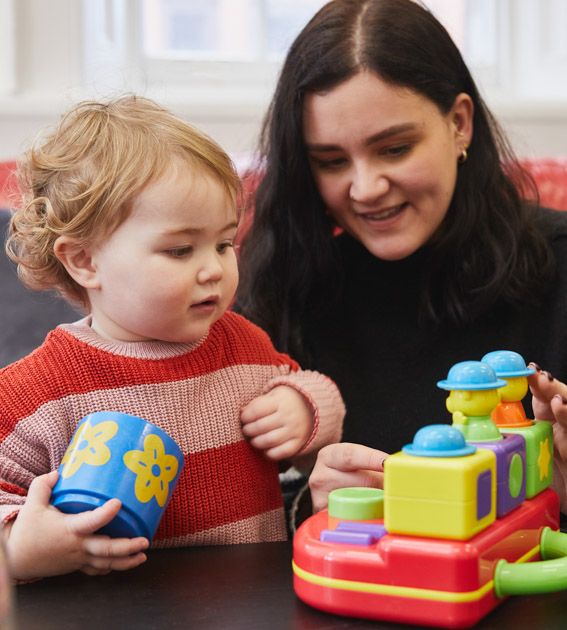
Emily: social work challenges me in every way
Emily Jones has been a qualified social worker for six years, and currently works as an asylum specialist for the London Borough of Merton. After completing the Frontline programme in 2016, she took a break from the profession after three years to work directly with vulnerable people and asylum seekers in a charity setting, before returning to local authority work.
When I made the decision to do the Frontline programme, I think some people in my family thought I should be doing something that would challenge me more intellectually than social work would (or so they thought). But social work does challenge me intellectually, as well as socially, emotionally and in every other way.
I found the training and approach to learning on the Frontline programme so valuable. It really focuses on quality of practice and equipping you with the theories and approach to practice that enable you to do the best work with children and families. The focus on systemic practice and motivational interviewing is key to this – both models take a very specific approach to working with families – it always keeps them at the centre and helps them, rather than tells them, to make sustainable change. What’s also really useful on the Frontline programme is working with the support of a consultant social worker (CSW) and having cases allocated to both of you; to see how an experienced social worker approaches a case and can learn directly from that. You’re not thrown in the deep end from university either – Frontline makes sure your case load does not becomes too overwhelming, and also prepares you for the transition and increased responsibilities from year 1 to year 2/ASYE.
When I then trained to be a CSW myself (an opportunity Frontline gave me alongside systemic supervision from a practice tutor), I became even more aware of just how important taking a systemic approach is for us as practitioners. It’s easy to want to enact change for families rather than empowering them to bring about the change themselves but, in my opinion, this isn’t a realistic way of working. A systemic approach allows social workers to have a holistic appreciation of why a parent or child may be behaving in a certain way, thinking about their own history or family interactions and therefore better enabling social workers to locate the best way to help a family change. Unfortunately, it is sometimes hard to do this in-depth work with a family as high caseloads and high expectations around recording takes away from the time you need to spend with families. Different local authorities also use different or a combination of models, and systemic isnt always included in or prioritised within these.
Social workers handle a kind of risk that few others have to, and often with a lack or resource or public support – I’ve been reflecting this even more in the wake of the death of Arthur Labinjo-Hughes. This is also why the Frontline programme trains you to be positive advocates for change within the social work system – to and make the system work better for children and families. Being part of a network of change-makers through the Fellowship has been really valuable, as has the support offered through the Fellowship.